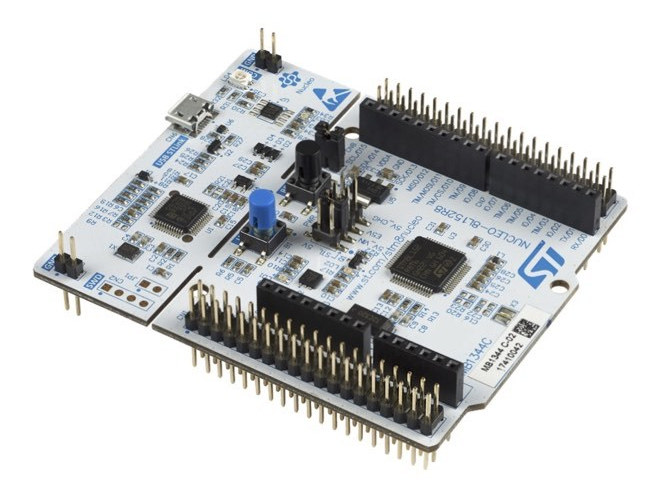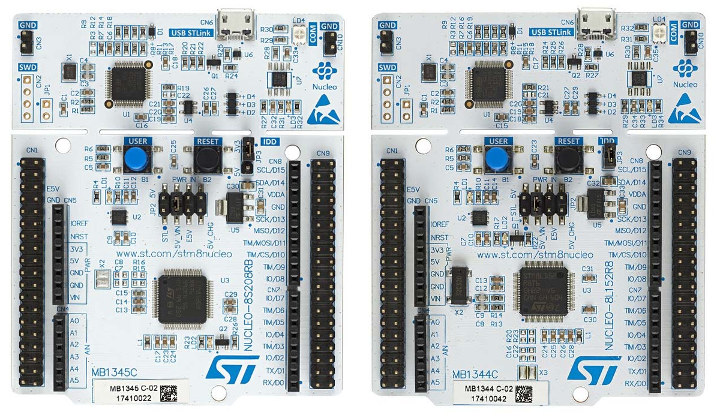While development boards based on STMicro STM8 8-bit MCU such as the “one dollar board” or the official STM8 Discovery boards have been around for several years, STMicro had yet to release a Nucleo board based on the microcontroller. The company has now unveiled not one, but two such boards with NUCLEO-8L152R8 and NUCLEO-8S208RB. Both boards will look similar as only the MCU differs. The former features a 16 MHZ MCU with 64 kB flash and 4KB SRAM, while the latter comes with a 24 MHz MCU with 128 kB flash, and 6KB SRAM. STM8 Nucleo board specifications:
STM8 Nucleo board specifications:
- MCU (One of the other)
- NUCLEO-8L152R8 – STMicro STM8L152R8T6 8-bit MCU @ 16 MHz with 64 kB flash, 2KB EEPROM, 4KB SRAM
- NUCLEO-8S208RB – STMicro STM8S208RBT6 8-bit MCU @ 24 MHz with 128 kB flash, 2KB EEPROM, 6KB SRAM
- 4x LEDs – USB communication (LD4), 5V STLINK (LD3), User (LD2), Power (LD1)
- 2 push-buttons – USER and RESET
- 32.768 kHz LSE crystal oscillator for the NUCLEO-8L152R8 only
- USB – 1x micro USB port acting as virtual COM port, mass storage, debug port
- Expansion connectors
- Arduino Uno V3 headers
- ST morpho extension pin headers for full access to all STM8 I/Os
- Debugging – On-board ST-LINK/V2-1 debugger and programmer with SWIM connector, micro USB port
- Power Supply – USB VBUS or external source (3.3 V, 5 V, 7 – 12 V)
- Power management access point

The company provides free software STM8 libraries including a variety of software examples, and the boards are supporting by various Integrated Development Environments (IDEs) including STMicroelectronics free STVD-STM8 (using Cosmic toolchain which enables C++ development), IAR, and Cosmic free IDEA.
The Arduino and ST morpho connectors allow developers to connect off-the-shelf add-on boards such as LCD modules, NFC expansion card, and more. But beside Arduino hardware compatibiliy, you can now also programthe board in the Arduino IDE as STM8 core support for Arduino has recently been added with the source code pushed to Github.
Both boards sell for $10.32.. You’ll find more details including documentation, tools, and purchase links on the respective product pages for NUCLEO-8L152R8 and NUCLEO-8S208RB boards.

Jean-Luc started CNX Software in 2010 as a part-time endeavor, before quitting his job as a software engineering manager, and starting to write daily news, and reviews full time later in 2011.
Support CNX Software! Donate via cryptocurrencies, become a Patron on Patreon, or purchase goods on Amazon or Aliexpress




